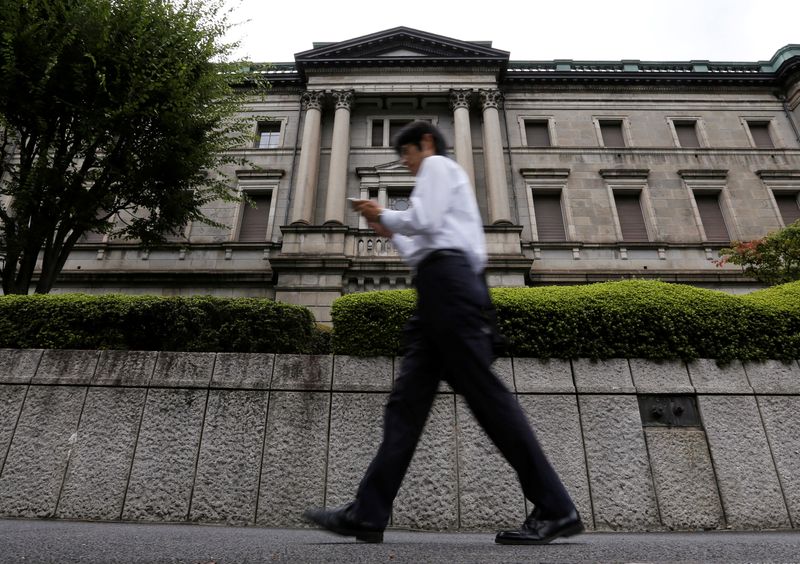By Leika Kihara
TOKYO (Reuters) - The Bank of Japan must thoroughly examine its stimulus programme and adjust interest rates more flexibly in response to cyclical economic swings, said Sayuri Shirai, an academic seen as a candidate to become deputy central bank governor next year.
With Japan's economy lacking momentum, the BOJ will likely need to keep interest rates ultra-low even after the term of dovish Governor Haruhiko Kuroda ends in April, said Shirai, who served as a BOJ board member for five years until 2016.
But the BOJ will likely, and ought to, conduct a comprehensive review of Kuroda's decade-long stimulus experiment when his successor takes the helm next year, she said.
"The most important thing the BOJ's new leadership must do is to clarify and simplify its policy communication," Shirai told Reuters in an interview on Monday.
"The BOJ must take steps to enhance the flexibility of monetary policy. Any steps it takes for this purpose would be different from sharp interest rate hikes," she said.
The review would help the BOJ lay the groundwork for a tweak to its monetary framework, said Shirai, who is currently professor at Japan's Keio University.
With experience as an economist at the International Monetary Fund, Shirai is seen by some market participants as a candidate to fill one of the two BOJ deputy governor posts opening up in March.
Under an approach called yield-curve control, the BOJ targets -0.1% for short-term interest rates and around 0% for 10-year bond yields. It also offers to buy unlimited amounts of bonds to defend an implicit 0.25% cap for the 10-year yield, a policy that critics say is distorting bond market functions.
Shirai said the BOJ must take into account its estimate of Japan's neutral interest rate, which was probably very low, when determining the appropriate target for short-term rates. A neutral interest rate neither simulates nor restricts economic growth.
It could then consider whether to adjust the 10-year bond yield target or widen the 50-basis-point band set around that target, she said.
"All in all, there's room to make the BOJ's interest rate policy more flexible," so it could adjust the rate targets more quickly in response to short-term economic swings, she said.
"Increasing flexibility would enhance the effect of its monetary easing and improve the function of Japan's government bond market," she said.
Governor Kuroda has said the BOJ has no intention to withdraw stimulus, including by raising interest rates, until its 2% inflation target is sustainably achieved.
But some investors see the chance of a rate hike when Kuroda departs, because Japan's ultra-low rates have triggered an unwelcome fall in the yen that is propping up import costs and pushing consumer inflation well above the BOJ's 2% target.
"The BOJ doesn't need to rush in making the changes," Shirai said, ruling out the chance of a near-term, major overhaul of yield-curve control. "It's short-sighted and undesirable to make changes to the BOJ's policy immediately after the new leadership is in place."
After a massive asset-buying programme failed to push inflation up to its 2% target, the BOJ shifted to yield-curve control in 2016. But it kept parts of the asset-buying scheme to appease advocates of heavy central-bank money printing, making its policy complex and hard to understand.
